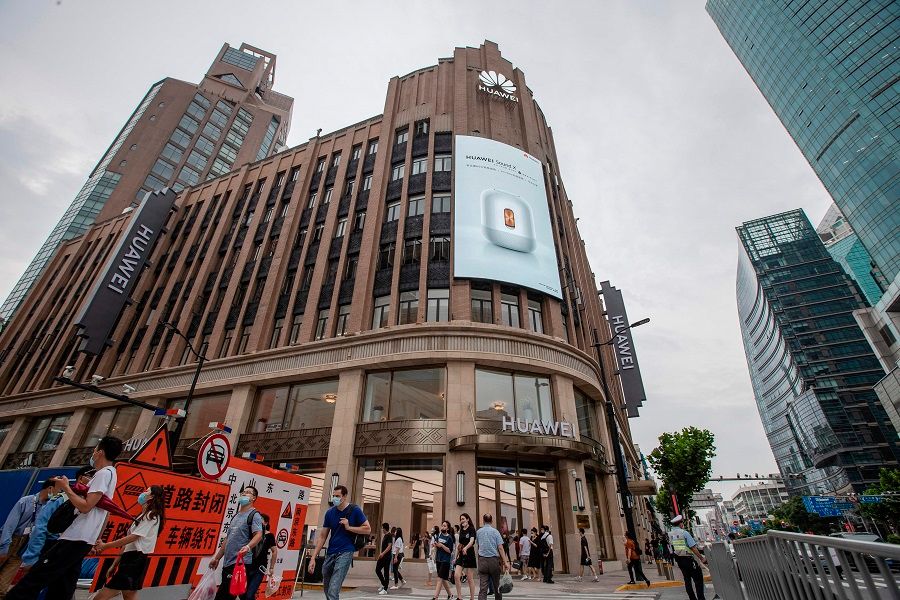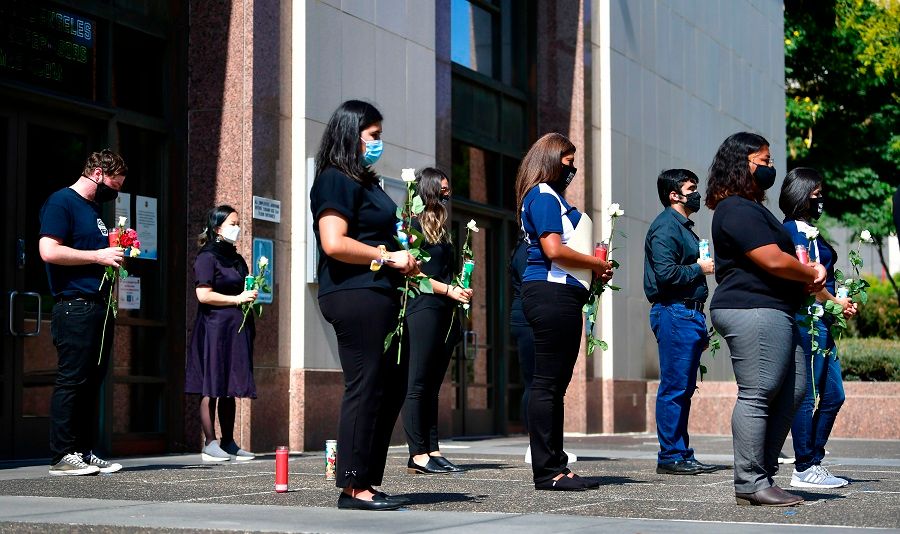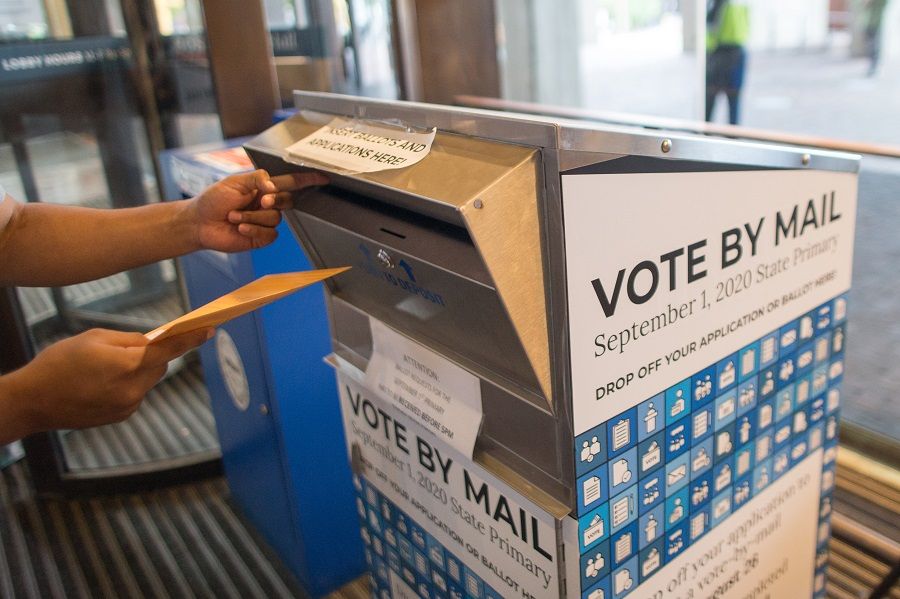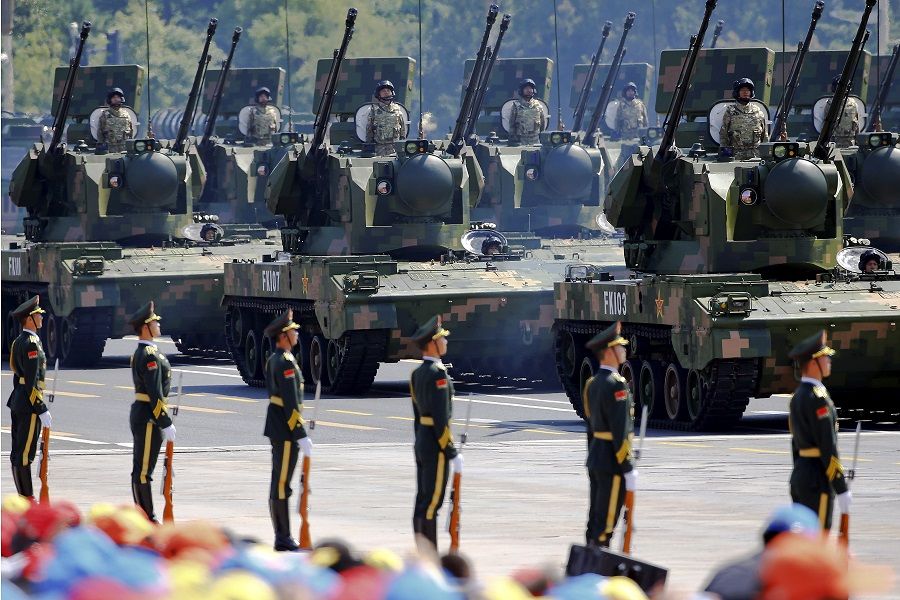China is waiting for the American bundle of nerves to calm down

As the saying goes, forewarned is forearmed. It is important to stay vigilant in peacetime. Such seemingly simple sayings are actually important concepts in China's strategic thinking.
Understanding the American psyche
China has been on guard against the US for a long time. As early as a decade ago, Huawei CEO Ren Zhengfei realised that China and US tech firms would eventually cross swords at the pinnacle of the industry. If so, would both parties embrace each other or try to push the other down the mountain? Since then, Ren has prepared a "Plan B", and that is how the company secured its position and prevented itself from being pushed off the mountain.
In 2011, the US proposed a pivot to Asia and planned to deploy 60% of its military troops to the Asia-Pacific region. Back then, China's military strength was far from its current level and there was no precedent in modern history that could help China escape harsh strategic competition. Should the US block China on the southeast coast, China must have other channels - towards the west or towards the north - to fall back on. This is so that its doors to imported energy and raw materials would not be completely closed, and outputs from its huge production capacity would still find a means of export. Thus, China proposed the Belt and Road Initiative (BRI) in 2013.
By looking at the worst-case scenario while striving towards the best that can happen, a basic direction in the handling of China-US relations is formed.

While Huawei's "Plan B" and China's BRI are issues of different magnitude, they are both preventive measures undertaken in critical times. This demonstrates China's keen understanding of the US's character, which has helped it maintain its proactive position in its dealings with the US. By looking at the worst-case scenario while striving towards the best that can happen, a basic direction in the handling of China-US relations is formed.
In 1983, four years after China-US diplomatic relations were established, Chinese paramount leader Deng Xiaoping protested against a US federal court default ruling on Hukuang Railway bonds issued under the Qing dynasty government when then US Secretary of State George Shultz visited China. Shultz explained that the US exercised judicial independence that inhibits governmental interference. Deng then replied that the US government actually comprised Congress, the Cabinet, and the judiciary. Which government should countries work with then?
Back then, China did not have a comprehensive understanding of the US. Following 40 years of diplomatic relations, China has now gained a clear understanding of the US government's structure and modus operandi. China's understanding of the US has become the basis for avoiding strategic misjudgements between both parties.
China does not think that bilateral relations have irreversibly fallen into the classic security dilemma.
A common enemy to ameliorate social fragmentation
Now, the US presidential election is fast approaching. The ruling US party is propagating the idea that China's long-term goal is to become a world-class power, and that its industrial policies, military buildup, and technological and financial pursuits are for the realisation of this goal. They also say that this power is led by communism. Once it has gained an advantageous position, it would place the US under its control.
The American public is inherently unprepared to accept an externally imposed destiny. Such propagations would trigger expectations of a united response to a perceived threat. The current government's fight with China can be understood as a means of providing people with a sense of assurance that they are somewhat masters of their own fate.

The core of America's political agenda lies in the elections that occur once every four years. The current government's handling of the Covid-19 pandemic has become the worst administrative example in the world and is set to become the target of criticism. To shift attention away from the pandemic, something of a greater magnitude must happen. Based on China's understanding, while the exaggerations of China-US competition indeed reveal the genuine views of some extremists in the US, they are still mainly being put forth in the context of the upcoming elections. As the saying goes, when there's a will, there's a way - China does not think that bilateral relations have irreversibly fallen into the classic security dilemma.
Verbal attacks and suppressions of China-related entities prior to the elections are clearly done to impress the American public, and are hardly surprising to China.
Opposition is the foundation of American political culture. Within the US, there needs to be opposition and rivalry between two parties. On the international level, it needs a well-defined enemy. The US declined following the disappearance of its major opponent, the Soviet Union. Without an enemy, political party rivalries would result in a divided society. Thus, the US is rushing to find an enemy to ameliorate the effects of internal social fragmentation that is getting worse by the day. As the need to compensate for bipartisan disagreements exists regardless of the political party in power, making enemies has become a common need of both parties in the US.
China has not made much noise about being cast as the US's self-proclaimed historic enemy. Verbal attacks and suppressions of China-related entities prior to the elections are clearly done to impress the American public, and are hardly surprising to China.
The US is currently in a state of social polarisation. The US Congress is trapped in a perpetual deadlock, hindering effective social governance. Mired in economic recession and racial strife, the American people have grown tired of a country stretched thin by its political situation.

The American left was once a force associated with change and progress. Now, it is gradually losing faith in the future. Right-wingers have given up on the past, while left-wingers refuse to embrace the future. Even the politicians' ability to galvanise society has become questionable. Under such circumstances, how would they get votes? Hence, scaremongering and intimidating voters seem to be a reliable way.
Former UK Labour Party political consultant Philip Gould once said something to the effect that modern voters are unreliable, uncertain and anxious. They fear that things will get worse more than they hope that things will get better, and they are inspired not by a positive vision for the future, but by a fear of evil. China understands that this is why it is being portrayed as a monster that terrorises voters.
China's calm composure shows that it understands the US. The US's bullying, on the other hand, reflects its anxiety stemming from a lack of confidence.
China knows to bide its time
US Secretary of State Mike Pompeo's speech on "Communist China and the Free World's Future" at the Richard Nixon Presidential Library and Museum in California is seen as the start of a new Cold War. One of China's most rational responses has been this: China did not come to a Marxist conclusion and think that the capitalist US is now in chaos and is utterly corrupt and self-destructive, hence gathering a coalition of anti-US forces to fight against it. Instead, China reiterated its willingness to resume "dialogue mechanisms at all levels and in all fields" in the hope of bringing China-US relations back on an even keel.
While China does not wish to become the US's enemy, it has to endure and survive this difficult period. Former US Secretary of State Henry Kissinger said in a speech late last year that it is no longer possible to think that one side can dominate the other. China's calm composure shows that it understands the US. The US's bullying, on the other hand, reflects its anxiety stemming from a lack of confidence.
Regardless of the complexity of ties between major powers with nuclear weapons, it boils down to this simple question of whether they want to coexist or perish together.

Diplomatic relations exist against the backdrop of military force being used. China-US relations are no exception. Regardless of the complexity of ties between major powers with nuclear weapons, it boils down to this simple question of whether they want to coexist or perish together. We must believe that neither China nor the US wants to destroy human civilisation.
The world does not only belong to China and the US. It is also home to the world's population of seven billion.
In the pre-nuclear era, wars were sometimes not deliberately initiated. World War I, for one, suddenly erupted as a result of a mishandling of a terrorist attack. Today, it is easy to wage a local war. Yet, in a world without mechanisms to prevent the escalation of wars, local wars could escalate into nuclear wars. The possibility of using nuclear weapons will shape the future direction of China-US diplomacy.
The Cuban missile crisis of October 1962 would have resulted in a nuclear war, if not for mutual concessions made between the US and the Soviet Union at the most critical moment, finally resolving the crisis. At the toughest moment, the Soviet Union would rather see itself fall than attempt to go into a strategic duel with the West using nuclear weapons. Political rationality should always take precedence in major power relations and always be clearly expressed, although the current situation may not be so.
The world does not only belong to China and the US. It is also home to the world's population of seven billion. A China-US showdown would bring about catastrophic effects to the world. China is waiting for the American bundle of nerves to calm down.
Related: From a Marxist perspective, the China-US Cold War is inevitable | Even as the US obstructs its way, how can China build trust for the BRI? | Who is winning the 5G technology race? | Will China and the US fight another wrong war, with the wrong enemy, at the wrong place and time? | A 'failed state'? China must not misjudge the US | The US will accelerate its own decline by suppressing China | Playing the China card - how far will Trump go?
